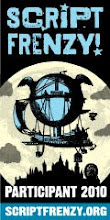POD-dy Mouth recommended MY OTHER BODY by Ann Pai. I generally steer clear of print-on-demand and other self-published books because there are so many bad ones, but with a recommendation and a story blurb that interested me, I decided to try this book.
On September 11, 2001, when the world focused on the terror attacks on the twin towers and elsewhere in America, Ann Pai focused on her older sister's sudden hospitalization for morbid obesity.
The story weaves in bits of childhood memories with her sister, struggles with weight throughout their lives, and some family dynamics. It also takes us into the hospital, where Ann lives the details of her sister's life, into Ann's workplace, where she finds support from co-workers, and into Ann's internet research, where we get technical information about the medical problems caused by obesity in a user-friendly format.
And we get poetry in the language and imagery of a sister's love.
I felt connected to Ann Pai--I'm the younger sister of a morbidly obese woman whom I love. And I, too, am overweight.
But I wanted more from this memoir than I got.
I was irritaed by Ann Pai's repeated commenting on her parents unpreparedness for her sister Joyce's anticipated death. Her insistent voice that they weren't able to cope, hadn't grasped the fullness of the reality, were in denial, made her an unreliable narrator. There was no other indication that her parents lacked the maturity and capacity to handle the situation. When they proved their mettle by having a ready response for the question about life support, Ann Pai still was unwilling to see her parents as adults. I found this odd, distancing. I wanted Ann Pai to be more respectful by acknowledging the talents and capacities of her parents, and not offering that pseudo-respect that "protects" adults from information and real life.
In this memoir, there is no answer why Joyce became obese, why Ann had weight issues herself. The overall story seems to suggest that it was genetics or just something in the air from her mother's side of the family. The hospital staff are perplexed because Joyce had a job she enjoyed and a family who loved her. The mystery of why Joyce became obese is not answered. My sister is obese and I know why. I gained a lot of weight in a short period of time, and I know why. These reasons may not be common knowledge, but they exist. They aren't a mystery to us. It seemed unbelievable that Ann Pai, with her bravery in writing this memoir, would not at least acknowledge that reasons existed. I wanted that acknowledgement.
And then she could have exploded another myth: the reasons that caused the obesity are totally irrelevant to the solution. I wanted that, too.
Ann Pai did show her own struggle with the solution and her own resolution. Her husband proved to be a remarkable man. And I loved when Ann Pai portrayed her own answer to her weight struggle as a different wanting, as needing, as acknowledging what she really wanted and taking the risk to choose in the moment what she really wanted. But she muddles the message with the information about her own weight loss, her success riding the bike over the crest of the hill, her blending in with "ordinary" people. I think the resolution is the lifestyle you like, one that's healthy and fulfilling, not the outcome. Ann Pai says that, but it gets blurred in transmission.
I also found the repeated internal monologues focusing on food, size, and weight to be disproportionate to reality as I know it. This obsessive repetition disgusted me. When Ann Pai talked about being a size 18 and described herself as practically immobilized by obesity, never forgetting for a moment that she was huge, I couldn't believe it. Life doesn't stop. There are so many wondrous and happy moments, fulfilling and exciting times, and women size 18 can share those--we're not locked in a depressed state of mind constantly consumed by our eating habits. I don't want readers to think that anyone who isn't the perfect size is therefore incapable of thought beyond their own imperfections, incapable of living and enjoying life. One could come away with that impression from reading this book. I wanted a more balanced picture.
And what I wanted most was a better understanding of my own relationship with my sister. I was hoping for some spark, some insight, some nuance I'd overlooked. I can't fault Ann Pai for not providing me with my personal need. But I wanted it, and didn't get it, so for me the book is a good read, but a bit of a let down. I'd recommend it. But like life, it's not perfect.
Subscribe to:
Post Comments (Atom)













No comments:
Post a Comment